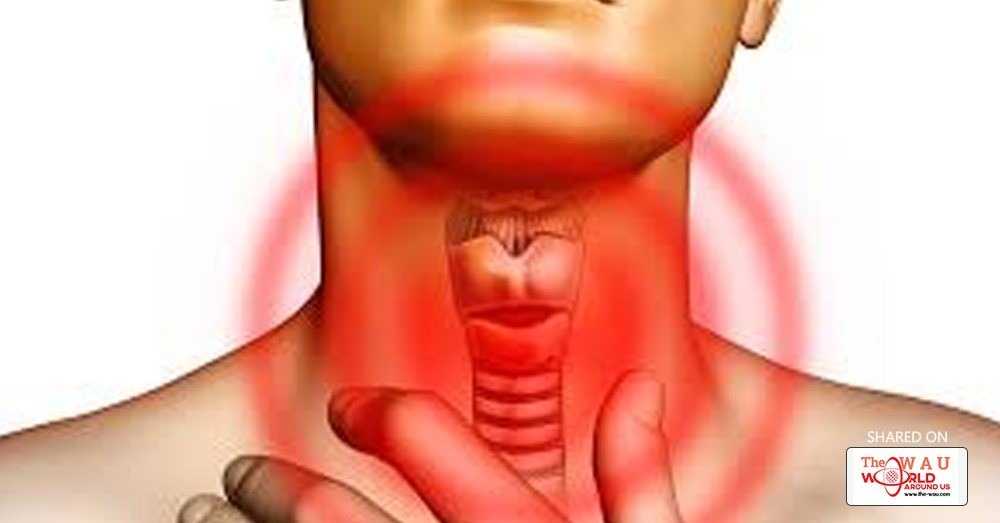Hyperthyroidism is a disorder in which your thyroid gland makes and releases more thyroid hormone than your body needs. Your doctor may say you have an "overactive thyroid," or refer to the condition as "overactive thyroid disease."
Your thyroid gland is located in the front of your neck. Hormones released by the thyroid affect nearly every part of your body from your brain to your skin and muscles. They play a crucial role in controlling how your body uses energy, a process called metabolism. This includes how your heart beats and even how you burn calories.
Women are five to 10 times more likely to develop hyperthyroidism than men.
Causes of Hyperthyroidism
The causes of hyperthyroidism include:
Graves' disease . The most common cause of hyperthyroidism is an autoimmune condition called Graves' disease. The body's immune system creates an antibody that causes the gland to make an excessive amount of thyroid hormone. Graves' disease runs in families, and usually affects younger women.
Thyroiditis. Thyroiditis is inflammation of the thyroid. A virus or problem with the immune system causes the gland to swell, leaking thyroid hormone into the bloodstream. There are several types of thyroiditis.
Subacute: A sudden, painful form of thyroiditis of unknown cause. The thyroid usually heals on its own after a few months. The thyroid can become underactive for a while before it returns to normal.
Postpartum: This type of thyroiditis affects women after pregnancy. One to two women out of every 10 women develop hyperthyroidism after having a baby. It usually lasts a month or two, followed by several months of underactive thyroid (hypothyroidism). In most women, the thyroid returns to normal.
Silent: This type is similar to postpartum thyroiditis but is not related to pregnancy. The thyroid produces too much hormone but patients do not develop a painful thyroid gland. Some people may develop hypothyroidism afterwards.
Thyroid nodule. One or more lumps, or nodules, can grow in the thyroid gland, gradually increasing the gland's activity and the amount of thyroid hormone in your blood.
- If one nodule causes hyperthyroidism, it is called a single toxic nodule.
- If several nodules cause the thyroid to become overactive, the condition is called toxic multinodular goiter.
Excess iodine. You may also develop hyperthyroidism if you eat, drink, or are otherwise exposed to substances that contain a high amount of iodine. Iodine is used by the body to make thyroid hormone. Kelp or seaweed supplements and the medication amiodarone (Cordarone, Pacerone), once used to treat irregular heartbeats, are examples of medicines that contain a lot of iodine.
Thyroid medications. Taking too much thyroid hormone medication can wreak havoc on your thyroid gland and cause hyperthyroidism. If you have been prescribed thyroid replacement hormone (for hypothyroidism), never take an extra dose, even if you missed one, without first talking to your doctor.
Symptoms of Hyperthyroidism
Symptoms of hyperthyroidism may be vague and can often mimic other illnesses and conditions. If you have a very mild form of hyperthyroidism, you may not notice any symptoms. Symptoms are often particularly subtle in the elderly. However, an overactive thyroid often leads to discomfort or even disability that disrupts your everyday activities or routines.
Thyroid enlargement, called a goiter, occurs in most people with hyperthyroidism. You may see or feel a lump in the front of your neck. Sometimes only your doctor will be able to detect a goiter.
Other symptoms of hyperthyroidism include:
- Anxiety, nervousness, and irritability
- Frequent, loose bowel movements
- Difficulty sleeping
- Double vision
- Eyes that bulge out, or "protrude" (in patients with Graves' disease)
- Hair changes, including brittle hair, thinning hair, and hair loss from scalp
- Irregular heart beat (arrhythmia), especially in older adults
- Menstrual cycle changes, including lighter bleeding and less frequent periods
- Muscle weakness, especially in the thighs and upper arms
- Rapid fingernail growth
- Rapid heartbeat, usually over 100 beats per minute
- Shaky hands
- Sweating
- Thinning skin
- Weight loss despite increased appetite
...[ Continue to next page ]
Share This Post












